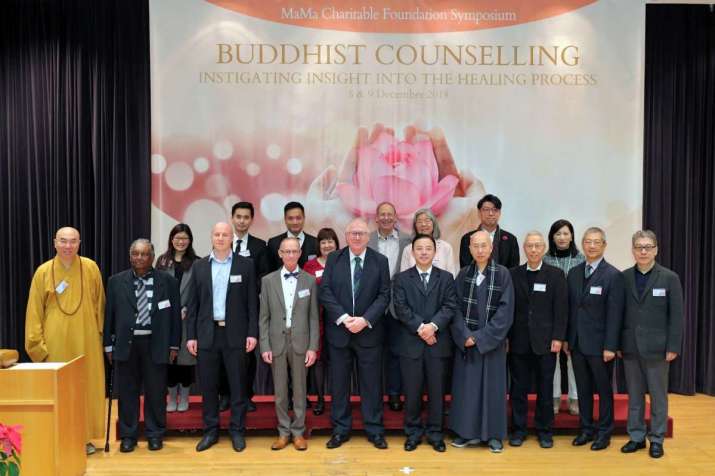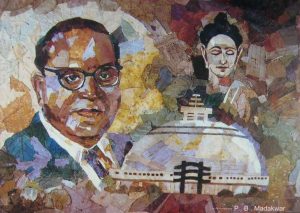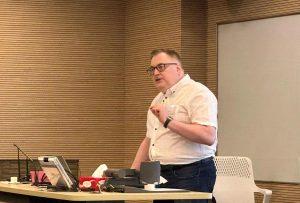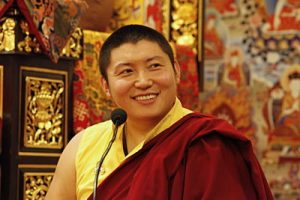
From 8–9 December the Centre of Buddhist Studies (CBS) at The University of Hong Kong (HKU) hosted the MaMa Charitable Foundation Symposium, titled: “Buddhist Counselling: Instigating Insight into the Healing Process.” Experts, researchers, and specialists from around the world were invited to Hong Kong for 2 days of lectures and workshops focusing on Buddhist counseling and counseling techniques.
The symposium was a fruitful meeting of diverse perspectives on Buddhist-inspired interventions and the alleviation of suffering linked to the inevitable decline and end of human life. The symposium was inspired by how the Buddhist teachings are linked to the wellbeing of the lives of patients and their families and caregivers. “It is the hope that participants can develop insights into the Buddhist understanding of suffering and ending of suffering and apply this knowledge skillfully for the good of all,” stated the program.
The conference began on the 8 December with Prof. Padmasiri de Silva’s keynote on mindfulness-based pain management and cognitive behavior therapy, while Prof. Edo Shonin presented a model of “human functioning” that tackles the root causes of ego building. Prof. Samuel Wong discussed his work on mindfulness-based interventions for psychological suffering, and afterwards Dr. William Van Gordon discussed the psychotherapeutic applications of the Buddhist theory of emptiness. Prof. Liang Tien and Dr. George Lee offered a theoretical orientation of early Buddhist teachings through “citta psychotherapy.”
In the afternoon, Prof. Elizabeth Lobb discussed how death and dying should be managed through wise and compassionate explorations of grief and bereavement. Ven. Hin Hung and Bonnie Wu discussed an intervention and awareness training program textually aligned with the teachings of the Sandhinirmochana Sutra, and focused on coherent theory and praxis, called ATP (Awareness Training Program).
Prof. Lobsang Tenzin Negi’s lecture on CBCT (Cognitively-Based Compassion Training) opened the second day of the symposium, followed by Ven. Hin Hung and Dr. Jennifer Yim’s model of Dharma Therapy. Prof. Elaine Yuen of Naropa University introduced Buddhist ministry and pastoral care, injecting Buddhist theological reflections into the discipline of helping a patient who needs a space to share vulnerability and explore meaning. She distinguished between counseling and chaplaincy, noting that the latter does not seek to give answers, but rather go on a journey with a patient equipped with “theological reflexivity.” She also gave an overview of Buddhist chaplaincy education in the US. Focusing on a local (Hong Kong) case study, Ven. Hin Yan shared thoughts on the progress of her chaplaincy service in Tuen Mun Hospital, which has been ongoing since 2010.
The conference concluded with three concurrently running workshops for enrolled participants. Ven. Hin Hung and Bonnie Wu gave a workshop centered on ATP. Prof. Lobsang Tenzin Negi’s workshop focused on the core concepts of CBCT and how the approach taken to contemplative practice differs from more widely known meditation models. Finally, Edo Shonin and William Van Gordon gave an interactive seminar on Meditation Awareness Training (MAT), and how it could be applied to life and work scenarios.
The symposium was co-organized by the Hong Kong Buddhist Association, Tsz Shan Monastery, and sponsored by the MaMa Charitable Foundation. The MaMa Charitable Foundation has sponsored many programs at HKU CBS over the years, including the MaMa Charitable Foundation Visiting Professorship in Buddhist Studies (now in its sixth year), which hosts a senior scholar to give a series of lectures about a topic central to Buddhist Studies.
See more
MaMa Charitable Foundation Symposium (CBS)












